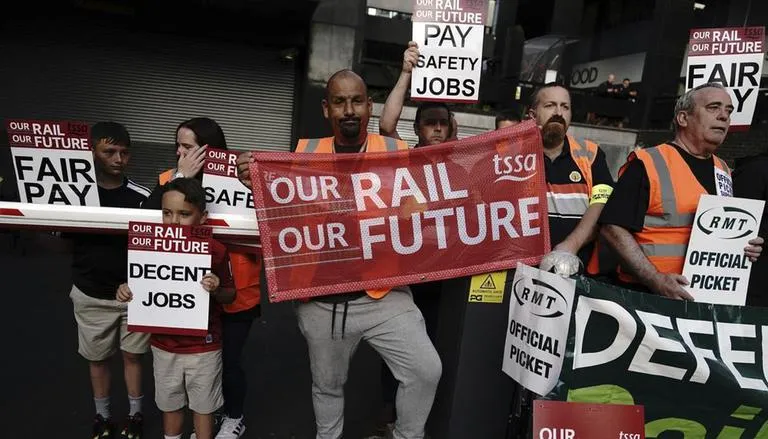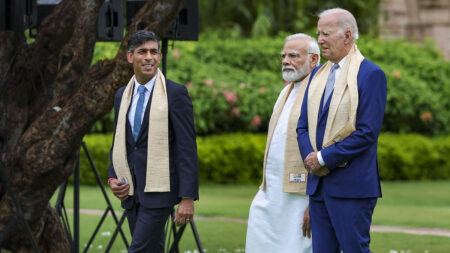5000 train drivers walk out following the 40,000 workers who performed a nationwide strike Wednesday.
Approximately 5,000 Aslef union members are on a 24-hour strike that is impacting train services throughout England, including Southeastern and West Midlands Trains.
Since rail privatization in 1996, this has been the train drivers’ largest strike.
The majority of English Football League clubs’ first-season fixtures, the Commonwealth Games in Birmingham, and a Lady Gaga concert will all be affected by travel.
After several walkouts, it makes passengers’ miserable summer even worse.
In addition to Arriva Rail London, which runs the London Overground, Greater Anglia, Great Western, Hull Trains, and Heathrow Express are all impacted by the most recent strike.
Southeastern will not operate any trains, while Great Western Railway, which provides assistance between England and Wales, and LNER will offer drastically limited service.
Additionally, there won’t be any Overground service until early Sunday morning.
Due to the massive number of people visiting the city for the Commonwealth Games, West Midlands Trains has announced that it will only run a “special shuttle” between Birmingham New Street and Birmingham International.
Trains operated by non-strike operators are expected to be crowded.
Aslef and the RMT union are planning additional strikes in August in their dispute over pay, jobs, and working conditions.
Wednesday was also disruptive for passengers due to the rail strike.
Over salary, job losses, and terms and conditions, some 40,000 RMT union members at Network Rail and 14 other train firms walked out.
Millions of passengers, especially those expecting to attend the sporting events, will have their plans thrown off, according to the Rail Delivery Group (RDG), which represents rail companies.
It advised travelers to make advance plans and research current travel advisories.
“We’re really disappointed that the Aslef leadership has decided to impose yet more uncertainty and disruption for passengers and businesses in a week which has already seen a strike by the RMT,” said Steve Montgomery, the RDG chairperson.
Passengers could utilize any advance tickets on Friday or up until Tuesday, according to the RDG, or they could change their tickets or request a refund.
Mick Whelan, Aslef’s general secretary, conveyed that he is willing to have an open discussion. Still, his operational drivers have no offers to make any further after the unfair treatment regarding salaries.
Foreign state-owned rail businesses that operate in Britain’s trains primarily for profit are given short-term contracts and operational subsidies by the government. As a result of the Covid-19 outbreak, more people chose to stay at home, and these subsidies increased dramatically.
Although ministers assert that it is up to the employers, Aslef, together with sister unions the RMT and the Transport Salaried Staffs’ Association (TSSA), believe that the government has prohibited the industry from delivering a pay boost approaching inflation.
After reaching an 8.2 percent agreement with Eurostar and a 5.1 percent increase at ScotRail, the union has in principle agreed to a 6.6 percent increase from Transport for Wales.
Strikes are “usually the last resort,” according to Whelan, but the union was “put into this position by the companies, who allege they were led to this by the Tory government,” he added.
Many of his members, he claimed, had experienced real-terms pay cuts since 2019, when they last received a pay increase.
London Mayor Sadiq Khan said, “The only way these disputes are ever resolved is if the transport secretary and the government stops pulling the strings and allows the rail companies to talk to the trade unions.”
On August 13 there will be another strike by Aslef drivers, and on August 18 and 20, industrial action will be taken by the RMT and TSSA.













